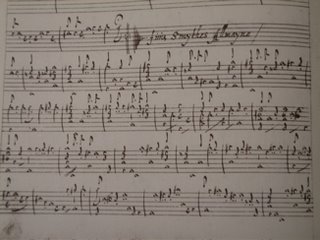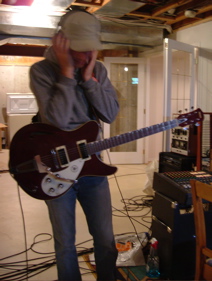Revenant: "40,000 ans de musique"
Richard Taruskin is one of the biggest names in ('traditional') musicology. So it's notable that on page 2 of the introductory chapter to his 4252-page History of Western Music (2005), he's dealing with bombs that have been dropped by one of the preeminent scholars of popular music, Robert Walser. Walser's critical acumen is precise and powerful; he cuts straight through the ribs of the debate, piercing its heart: the subject of Taruskin’s tome – ‘classical’ music – is extremely diverse, so much so that it only makes sense as an “invented tradition.” In the name of present (elitist) interests, this tradition "construct[s] a cohesive past to establish or legitimize present-day institutions or social relations.” Ouch.
So how does Taruskin justify one more – “potentially the last” – stab at a comprehensive examination of the impossibly heterogeneous body of Western art-music? In his own words, “it is the basic claim of this multivolumed book – its number-one postulate – that the literate tradition of Western music is coherent at least insofar as it has a completed shape. It’s beginnings are known and explicable, and its end is now foreseeable (and also explicable).”
And that’s when it hit me. The sober black cover, the delicate gold lettering, the fresh and un-turned pages, the carefully-preserved smell, the somber tone – the book is as much a tomb as it is a tome. A funeral. Ashes to ashes: One part history, one part eulogy.
So: A living 'popular'-music scholar is editing some dying 'classical' music.
 The appropriately titled "En me Revenant": Allmayne, ff. 8v-9r. In Margaret Board’s Lute Book (ca. 1620-1630), owned by Robert Spencer. Fascimilie: Robert Spencer, ed., The Board Lute Book. Leeds: Boethius, 1976.
The appropriately titled "En me Revenant": Allmayne, ff. 8v-9r. In Margaret Board’s Lute Book (ca. 1620-1630), owned by Robert Spencer. Fascimilie: Robert Spencer, ed., The Board Lute Book. Leeds: Boethius, 1976.


1 Comments:
i have no idea what that was all about but you sound real smrt i mean smart
Post a Comment
Subscribe to Post Comments [Atom]
<< Home